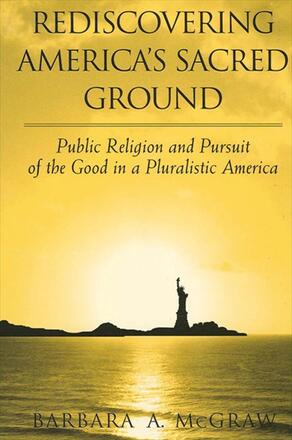
Rediscovering America's Sacred Ground
Public Religion and Pursuit of the Good in a Pluralistic America
Alternative formats available from:
Sees a way out of the contentious debates over the role of religion in American public life by looking back to the ideas of John Locke and the nation's Founders.
Description
Returning to the ideas of John Locke and the Founders themselves, Barbara A. McGraw examines the debate about the role of religion in American public life and unravels the confounded rhetoric on all sides. She reveals that no group has been standing on proper ground and that all sides have misused terminology (religion/secular), dichotomies (public/private), and concepts (separation of church and state) in ways that have little relevance to the original intentions of the Founders. She rediscovers a theology underlying the founding documents of the nation that is neither anyone's particular religion nor one requiring religion. Instead, it justifies freedom of conscience for all and provides a two-tiered public forum—a civic public forum and a conscientious public forum—for the debate itself and the actions that debate inspires. America's Sacred Ground—this theology and its public forum—determines the meaning of freedom and the ways in which Americans can pursue "the good": good government, good communities, good families, good relations between individuals, and good individuals from a plurality of perspectives. By exploring our past, McGraw answers the critical question, Who are we as a people and what do we stand for?
Barbara A. McGraw, JD, PhD, is Professor of Social Ethics, Law and Public Life and Director of the Center for Engaged Religious Pluralism at Saint Mary's College of California. She is coeditor (with Jo Renee Formicola) of Taking Religious Pluralism Seriously: Spiritual Politics on America's Sacred Ground and coauthor (with Robert S. Ellwood) of Many Peoples, Many Faiths: Women and Men in the World Religions, Ninth Edition.